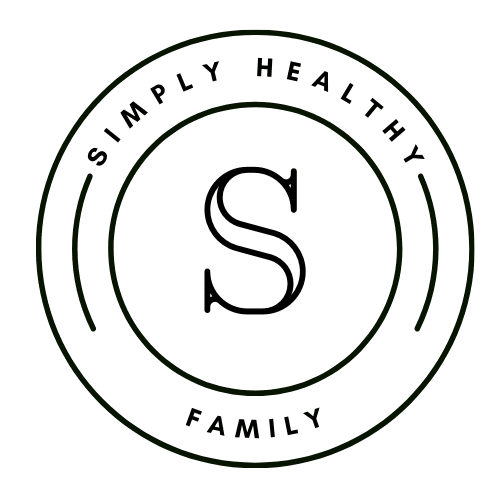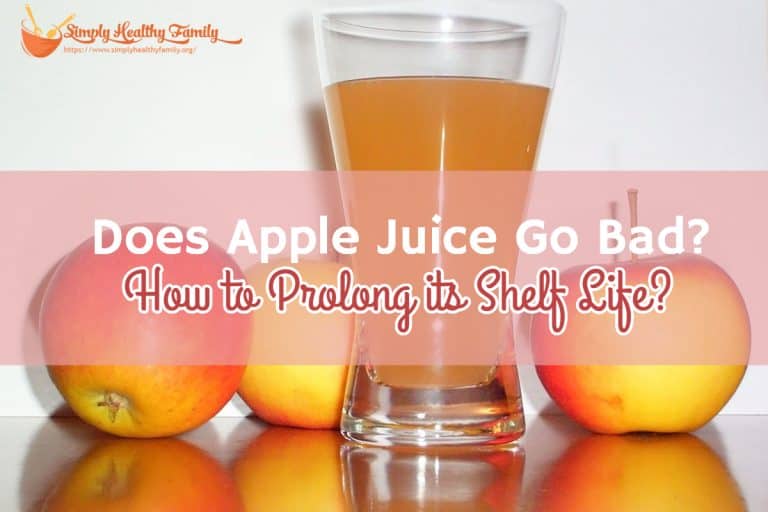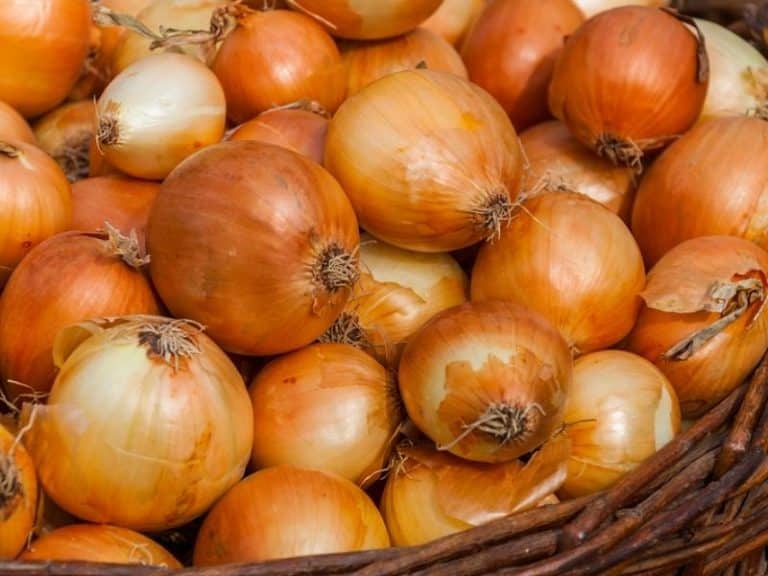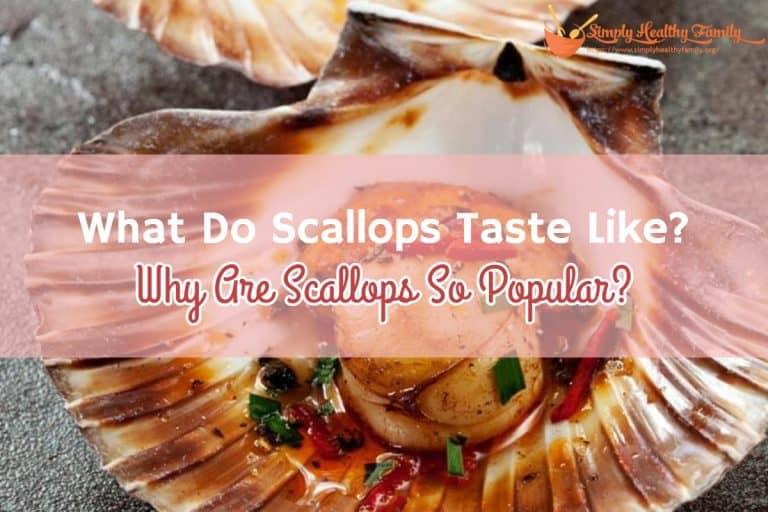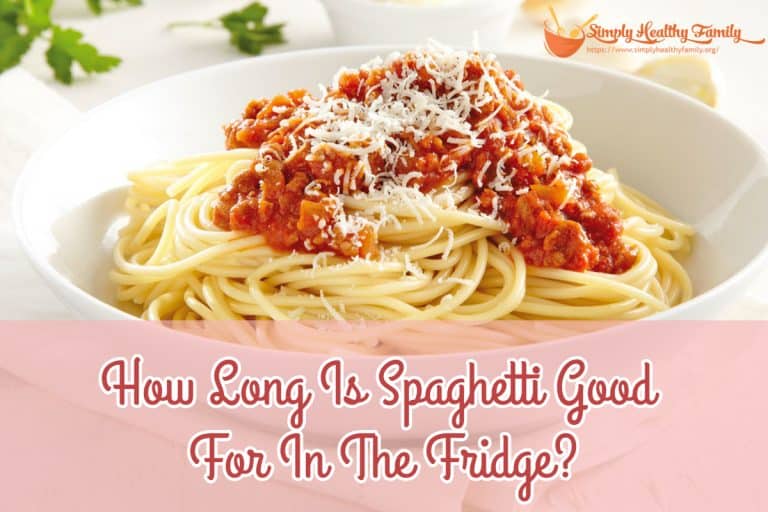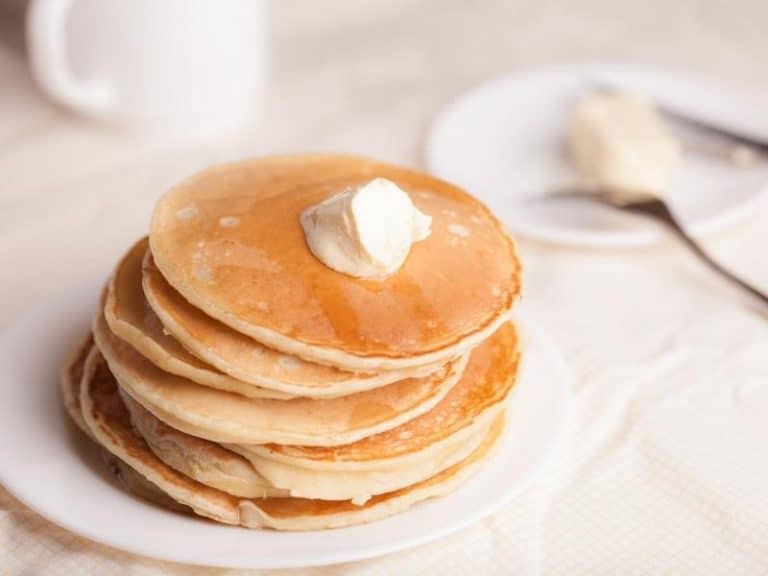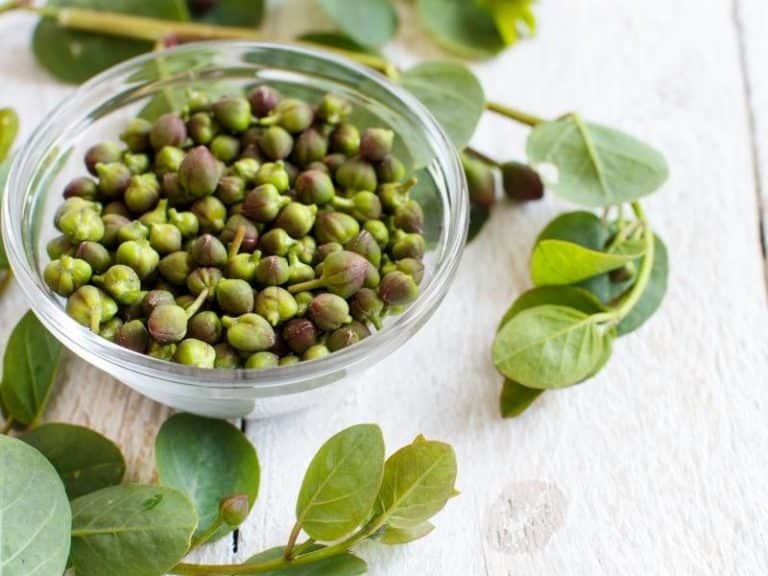What Are Scallops? 2023
What Are Scallops?
Scallops are a type of seafood known as a bivalves mollusk and are considered a delicacy because of their high price. Like clams, mussels, and oysters, scallops have an inedible outer shell that protects the delicate creature inside the shell.
The edible part of the mollusk is the whitish-pink, fleshy interior adductor muscle that’s responsible for opening and closing the shell.
Some scallops come from the shallow waters of bays and estuaries, while others come from the sea. Most of these mollusks are available year-round, but the peak harvesting season is towards the end of fall and throughout winter. In the United States, the primary sources of scallops are the waters off the coast of New England, particularly Massachusetts, and Maine. North Carolina also has scallops native to the area. Canada also has a substantial scallop fishing industry, primarily in Nova Scotia and Newfoundland. In Europe, scallops are widely harvested in the United Kingdom, particularly Scotland, as well as in France, particularly in the region of Normandy. In Asia, Japan and China are the largest producers of scallops.
The meat is sold as either dry-packed or wet-packed. Wet-packed scallops have been soaked in brine solution to plump them up, and they shrivel when cooked. Dry-packed scallops have no added brine and are pure scallop meat.
Nutritionally, scallops are a great source of lean protein and are rich in micronutrients such as vitamin B12, iron, zinc, and magnesium. They also contain omega-3 fatty acids, which are beneficial for heart health.
What Do Scallops Look Like?
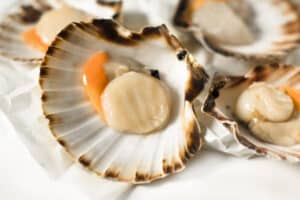
Scallops have a round, fan-shaped creamy-pink shell that opens and closes. The creatures swim rapidly by opening and closing their shells. Multiple tiny blue eyes along the shell’s rim allow the scallop to detect light and dark.
Types of Scallops
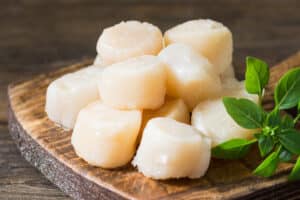
Bay scallops, delicious shellfish known for their sweet and tender meat, thrive in the shallow bays and estuaries commonly found amidst the reeds of East Coast waters, including areas like Cape Hatteras. In contrast, sea scallops are indigenous to the cold currents of the northwest Atlantic Ocean, though they also inhabit deep-sea waters in various other regions globally.
When comparing the two, bay scallops are significantly smaller, measuring about ½ inch across, roughly one-quarter the size of their sea scallop counterparts. Their tender texture and size make bay scallops a unique culinary delight. Sea scallops, however, are more substantial in size, typically measuring about 1.5-2 inches in diameter. Due to their larger size, sea scallops are a popular choice in fine dining establishments and are particularly well-suited for searing.
Diver scallops are a specific category of sea scallops that are hand-harvested by scuba divers rather than gathered using special machinery that dredges the ocean floor. Although this method results in diver scallops being more expensive, it is a more environmentally friendly process than machine fishing. In this way, we ensure the sustainable consumption of these delightful scallops while minimizing our environmental footprint.
What do Scallops Taste Like?
Scallops have succulent, tender flesh with a sweet-and-salty flavor and a buttery, delicate texture. The seafood has a similar taste to other seafood like crab and lobster. The outer adductor muscle is eaten, and the roe, or interior coral, is thrown away. In certain parts of the world, like the United Kingdom, the roe is considered a delicacy. They do not have a strong or overly “fishy” taste, which makes them popular even among people who aren’t seafood lovers.
How to Cook Scallops
Scallops are delicious when cooked properly, and while both sea and bay varieties can be skewered and cooked on the grill, specific cooking methods are more specialized for each variety.
Prepare fresh scallops by removing the scallop shells and the roe, and rinsing the scallops in cold water. Dry the scallops by patting them gently with a paper towel to remove excess moisture. Handle the meat gently because scallops are soft and can easily be damaged.
The best way to cook sea scallops is by searing just a few at a time in a hot pan with minimal added fat. Searing sea scallops preserves their naturally sweet flavor, so not much seasoning or flavoring needs to be added.
Bay scallops, because of their soft texture, are best sautéed, broiled, or poached. Broiling is my personal favorite.
One important thing to remember when cooking scallops is to avoid overcooking, as they can become tough and lose their delicate flavor. Properly cooked scallops should have a slight translucence in the center.
Scallop Recipes
There are many delicious ways to cook and serve scallops. This meat goes well in pasta dishes and with rice. Here are two easy recipe suggestions, both of which can be paired with rice or pasta.
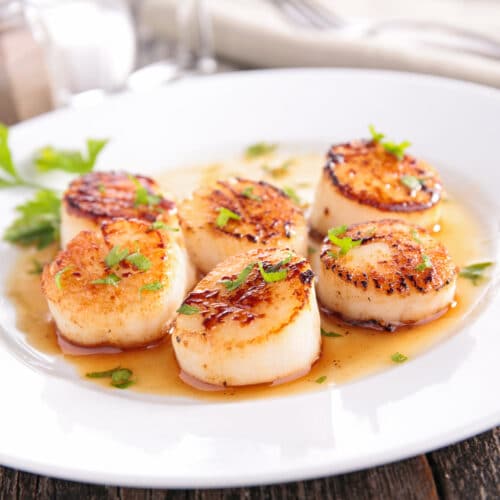
Garlic-Butter and Lemon Scallops
Ingredients
- 3/4 cup butter
- 2 tbsp minced garlic
- 2 lbs sea scallops
- 3 tsp lemon juice
- 1 tsp salt
- A sprinkle of freshly ground black pepper
Instructions
- Melt the butter in a large skillet and add the garlic
- Cook over low heat for two minutes
- Add the scallops and cook for 4 minutes, turning them over halfway through the cooking process
- Using a slotted spoon, remove the scallops and place them in a serving dish
- Add the lemon juice, salt, and pepper to the pan and whisk gently
- Pour the sauce over the scallops and serve while still hot
Notes
- Calories: 408
- Protein: 38.5 grams
- Carbohydrates: 8.9 grams
- Fat: 24.4 grams
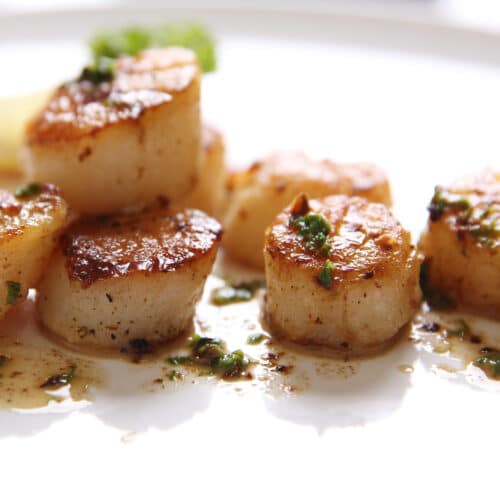
Seared Scallops
Ingredients
- 2 tbsp butter, cubed
- 1 tbsp olive oil
- 1 lb fresh scallops
- Kosher salt (to taste)
- Freshly ground black pepper (to taste)
- 2 tbsp dry white wine
- 1 tbsp fresh rosemary
- 1 tbsp fresh chopped parsley
- Fresh lemon wedges (to serve)
Instructions
- Melt half the butter together with the oil in a large skillet over high heat
- Season the dry scallops with salt and pepper
- Add scallops to the smoking hot pan
- Lower the flame to medium and cook for 2 minutes, or until the scallops turn golden-brown
- Turn the scallops and cook for another 2 minutes
- Remove the scallops from the pan and place them in a serving dish
- Add the remaining butter, the wine, the rosemary, and the chopped parsley to the pan
- Cook the sauce for 2 minutes and drizzle it over the seared scallops
- Serve with wedges of fresh lemon
Notes
- Calories: 209
- Fat: 10 grams
- Carbs: 6 grams
- Protein: 23 grams
FAQs About Scallops
Here are the answers to some common questions asked about scallops:
Are Scallops Shellfish?
Yes, scallops are shellfish. The edible part of the scallop is the soft, tender flesh that’s encased within a hard, inedible shell. This hard outer shell must be opened, or shucked, to get to the edible meat within.
How to Clean Scallops
Clean scallops that are still in their shells by shucking the scallops. If you by scallops that haven’t been cleaned, pry the two sides of the shell open with a knife. Carefully separate the adductor muscle — the edible part of the scallop — from the frill and the roe, which should be discarded. Rinse the scallop in cold water to remove all traces of sand and pat the scallop dry with a paper towel.
How to Thaw Frozen Scallops
The best way to thaw frozen scallops is in the fridge overnight. Remove the scallops from the package and place them in a bowl. Cover the bowl with cling wrap and place the scallops in the fridge to thaw overnight.
Frozen scallops can also be thawed in a strainer and run under cold water. Hold the scallops under the stream of water for a few minutes until they have defrosted. Dry the scallops well after thawing them to keep them from becoming soft and mushy.
Scallops can be thawed in the microwave on 30% power, but this method isn’t ideal because the scallops start to cook if left in the microwave for too long.
Can You Eat Scallops Raw?
Yes, you can eat scallops raw, and many people consider raw scallops even more delectable than cooked scallops. However, there is always a risk of food poisoning from eating raw seafood. Raw scallops should be cleaned meticulously and eaten immediately to minimize the risk of contamination from possible bacterial growth.
Are Scallops Healthy?
Yes, scallops are considered healthy. Scallops are a low-fat source of protein and are regarded as healthy seafood. Rich in Omega-3 fatty acids, magnesium, potassium, and Vitamin B-12, scallops promote heart health and help to keep blood pressure under control.
